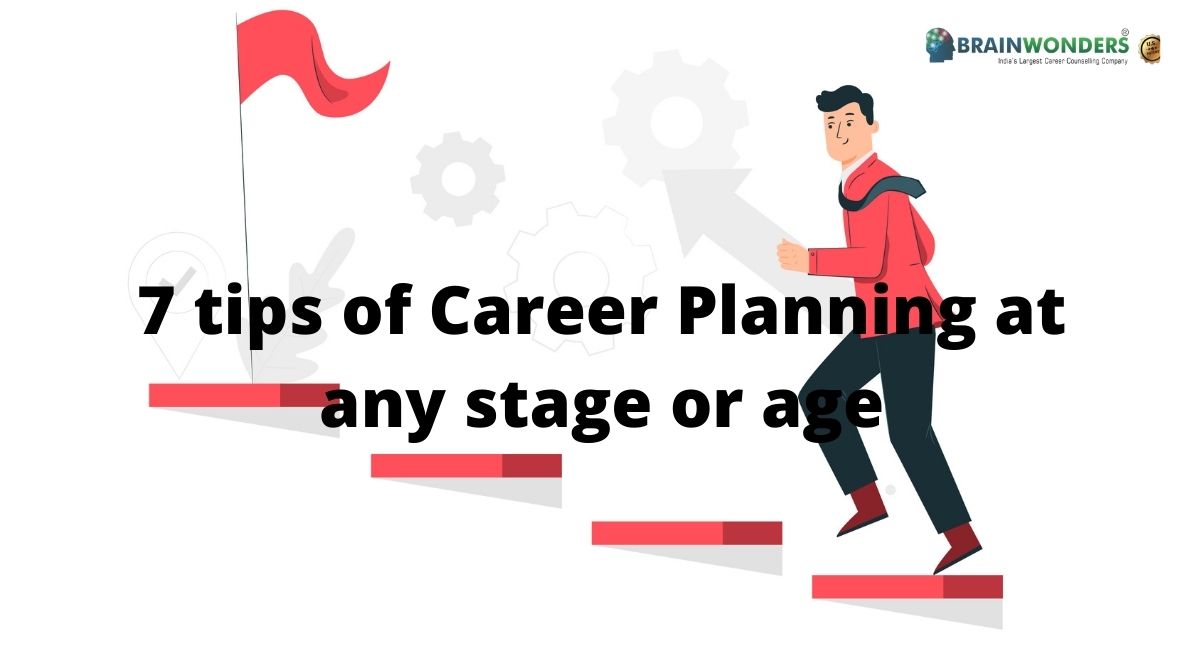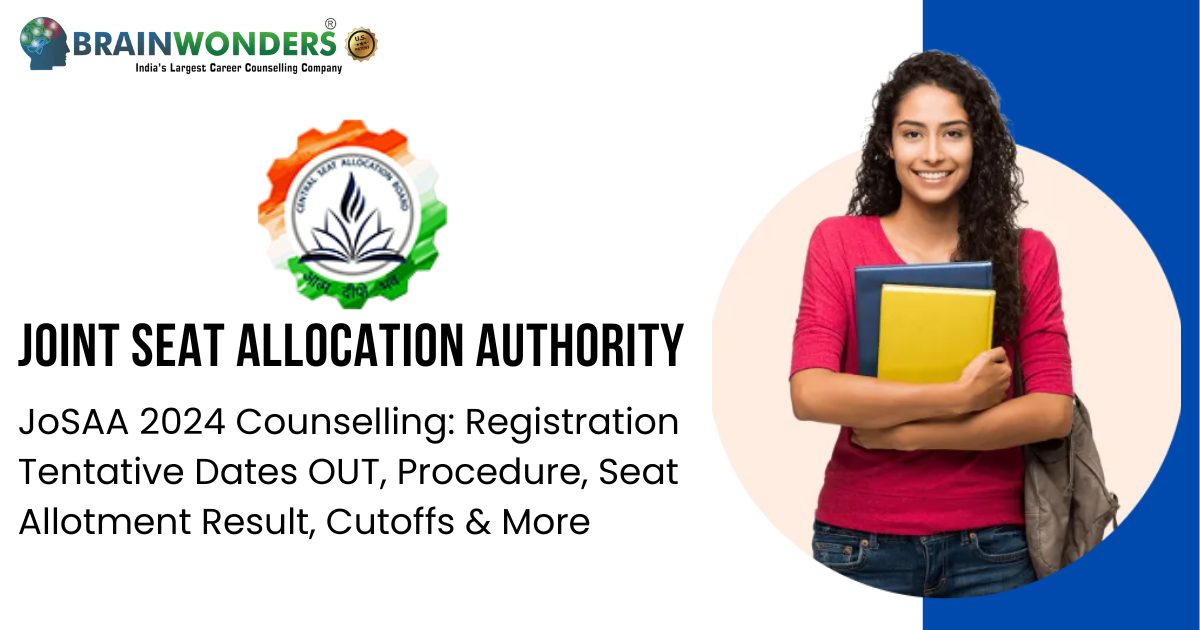

Let the best team of psychologists and career counsellors help you achieve your dream career!
Get expert guidance about your abilities, industries, and best ranked career options for you
Blog
06 June,2023 | By Brainwonders

Come on Jeffrey you can do it
Pave the way, put your back into it
This is exactly what career planning looks like. Many hurdles may arise along one's professional route; thus, being aware of these obstacles and carefully planning one's career is a huge relief. The approach a person uses to set career objectives and the path to achieving those goals is referred to as career planning. The procedure incorporates many actions, including self-improvement stages and the process of achieving these objectives. It entails deciding on specific professional goals and pathways. It motivates people to investigate and acquire data, allowing them to synthesize, build competencies, make decisions, create objectives, and take action.
Planning a career takes time, study, and work. Regularly, we must prepare for our careers. Given that the average worker will change occupations – not jobs – five to seven times over their lifetime, this isn't surprising. Read these guidelines for successful career planning whether you are just starting or have years of experience and are looking for a career move.

Reflecting on your prior achievements can motivate you to choose a profession that allows you to do the things that make you the proudest. Having a unique combination of accomplishments, talents, and education sets you apart from others in your profession. When you're working toward your next job objective, how to keep track of and write about your professional successes will come in handy. So, when it's time to change careers, you'll have plenty of evidence to show.

Take a minute to reflect on your trip thus far. Reflect on your experience and what you've learned thus far. Pursue some time to think about your present condition and the path you wish to take to improve your productivity and performance. Consider the following questions: Are you satisfied with your current professional road? What might you have done something differently or better? Things you can do in a different way in the future. It's a lot easier to make a strategy that fits your objectives and lifestyle when you know who you are and what you want.
Recommended Read: Planning to Choose PCMB after Class 10? Consider these 7 Things First.
Make a list if you're unsure. Our preferences vary over time, so it's always a good idea to consider what you care about most in your life and job at any given time. Make a list of the things in your employment that you enjoy and do not enjoy. It's also critical to have a clear and compelling aim that emotionally engages you. Establish a list of your present and previous employment loves and dislikes, then utilize that list to evaluate your career path. If the majority of your present job responsibilities fall into the "like" category, you're still on the right track; but, if most of your job responsibilities fall into the "dislike" category, it's time to start looking for other opportunities.
When there is a will there is a skill." Every profession demands a few sets of talents, and categorizing oneself based on these skill sets is far more beneficial than focusing just on job titles. Consider your goals and how the talents you have today might be valuable in a different career, in addition to your present work title. Make a list of abilities that are more transferrable, in the sense that these skills are important in any and every career and are not specific. Adding transferable skills to your CV helps. Also, conduct some study into the talents you'll require. What experience and abilities do you need to earn in the next year, or the next five years, to be qualified for the position of Vice President of Finance, for example? Then devise a strategy for accomplishing your long-term professional objective.
Visit Page: GET THE RIGHT GUIDANCE TO LEAP THROUGH YOUR CAREER
It is good to know current professional trends to design a successful career. A job sector that is flourishing today may abruptly dwindle in the future. Before you begin on a new career path, it is critical to discover if sustained employment growth is projected in the industries that interest you. Visualizing oneself in the future is an essential tool for career planning. Investigate new educational and training options. Finding training programs, classes, or seminars that can help you advance your profession is an important part of career planning. Utilize any professional development opportunities provided by your company. These are grants that can assist you in achieving your goals.
Setting goals can help you achieve even more. What are your short-term (next year) and long-term (five to ten years) professional objectives? SMART (specific, measurable, achievable, relevant, and time-bound) objectives are certainly familiar to you. Making a list and sharing it with mentors helps. This will assist you in instilling a feeling of responsibility. Another important aspect of career planning is assessing and changing your objectives regularly and setting new goals once you've completed your current ones. So, each time you get down to plan your career, pull out this list and go over it. Hence, being flexible in goal setting and listing realistic, achievable goals is very important.
Not every plan goes off without a hitch. As a result, being adaptable and assessing its strengths and shortcomings is critical. When it comes to something as essential as picking a job, it's critical to give your career planning efforts plenty of attention. Devote a day or weekend to researching your hobbies and potential job paths. Use this time to concentrate on obtaining a job that will provide you with the most long-term satisfaction. You will feel more confident in your job decision and direction in this manner. You'll be more equipped to deal with the challenges and uncertainties that lie ahead.
Career planning is essential regardless of the stage you are at. Although one of the most important aspects of any career planner is being sure that the road you have taken is the right one. If you are unsure of your professional path, the Brainwonders career counseling tests and sessions may be a savior for you.
Fill the form to know how!
.png)
